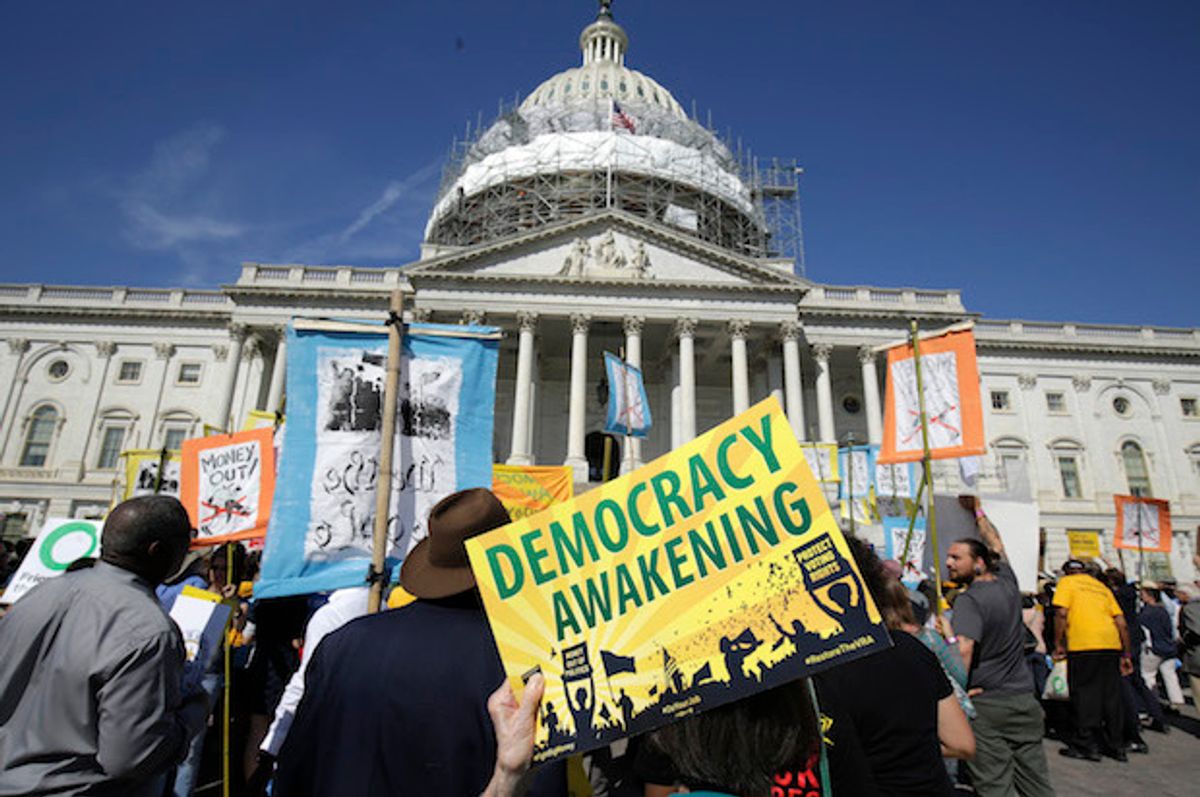Just as Donald Trump delivered his first State of the Union address on Tuesday night — in which he claimed that we had entered a “new moment for America” — a consortium of prominent analysts and economists studying democracies around the world ranked the United States as a “flawed democracy,” a step below "full democracy," for the second year in a row. Could this be the “new” America Trump is referring to?
The Economist Intelligence Unit (EIU), a unit under the aegis of The Economist magazine, released its annual Democracy Index report today, which seeks to understand and measure the state of democracy around the world. Every country on Earth is rated on a 0 to 10 scale, which is itself based on “indicators” from five categories: electoral process/pluralism, civil liberties, government functionality, political participation, and political culture.
In the EIU report, the U.S. received an overall score of 7.98, ranking second in the “flawed democracy” category, tied with Italy. South Korea ranked slightly higher in the same category, and Japan ranked third with a 7.88 index. Countries that ranked in the top five (out of 19) “full” democracies included Norway, Iceland, Sweden, New Zealand and Denmark.
As the report explains, nearly 49.3 percent of the world’s population live in a democracy “of some sort,” but only 4.5 percent live in a “full democracy.” In 2015, the US was demoted from a “full democracy” to a "flawed" one. The decline reflected a fall “in popular confidence in the functioning of public institutions, a trend that predated — and aided — the election of Donald Trump,” according to the report.
The remaining countries that are not classified as a “full democracy” or “flawed democracy” are either “authoritarian” or “hybrid regimes.”
It is of course concerning that America, the so-called leader of the free world, is struggling to preserve its democratic foundation. The EIU study points to an increase in “illiberal democracy” and “new authoritarianism” as to one reason why democracy is struggling on a global level. Another reason is the steep divide between political parties — and surprisingly, those who strongly oppose Trump.
“In this way, some opponents of Brexit and Trump have presented voters (and supporters of populist parties in general) as the threat to democracy today. The popular reaction to an economic and political system which many voters feel has left them behind is presented as the cause of democracy’s ailments rather than a consequence of them,” the study states.
Another report published this January, by the US-based think tank Freedom House, came to a similar conclusion. According to the Freedom House report, democracy faces its “most serious crisis in decades." The United States, the report said, was partly to blame for the global crisis because it “retreated from its traditional role as both a champion and an exemplar of democracy.”
Trump’s continuous outrageous claims — often made on Twitter — are particularly unhelpful to the tenets of democracy. As Brian Klaas, author of “The Despot’s Accomplice: How the West is Aiding and Abetting the Decline of Democracy,” wrote in the Washington Post, "democracy will not function if Americans cannot be sure that the president’s claims are at least grounded in evidence-based reality.”
"How can democracy function when people can’t take the president literally?” Klaas asked.
On a positive note, the country of the Gambia in West Africa was promoted in the report, moving up from “authoritarian regime” to a “hybrid regime," after dictator Yahya Jammeh's 22-year reign came to an end.



Shares